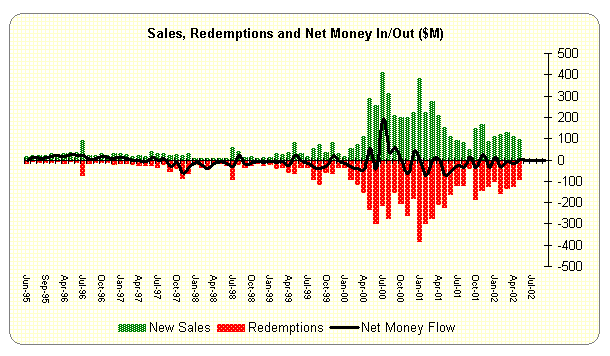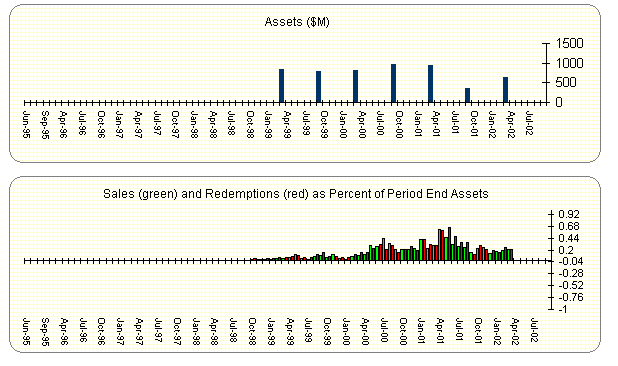Ms. Cindy Fornelli,
Deputy Director
US Securities and Exchange Commission
450 Fifth Street NW
Mail Stop 0506
Washington, DC 20549
October 28, 2003
Dear Cindy,
A critical "red flag" for mutual fund boards about late trading and market timing is the measurement of inflows and outflows of monies into each fund. Typically these flows can be expressed in absolute dollars and as a percent of fund assets (Exhibit 1 for example for Nations International Fund). As such flows are required disclosure in NSAR filings with the SEC, the accuracy of disclosures are fundamentally important.
The difficulty is that such flows are often reported by intermediaries on a "net" basis. This "netting" reduces the utility of the all important flows analysis and impairs the ability of an analyst to draw trends and comparisons across fund groups. SEC should require investment companies to show "gross" flows in their NSARs. In turn fund managers will require "gross" disclosure from their intermediaries. We believe that fund directors should review fund flows along the lines of Exhibit 1 at least quarterly. The problems of Nations International Equity are quite conspicuous.
Since the directors' response to late trading and market timing is vitally important to continuing the tradition of integrity in the industry, we also recommend that the SEC adopt one aspect of the compliance release that was open for public comment earlier in the year. We believe that the appointment of a Chief Compliance Officer should be approved by the Board.
The initial industry response was that such an approach might take the independent directors into micro-management. We now believe, particularly as a result of the alleged Canary Capital violations, that this danger (which the directors are quite capable of assessing for themselves) pales in comparison to the need to restore faith in the process. There must be no real, or perceived, impediment to the ability of the compliance function to being exceptions to the Board's attention.
I understand that Sarbanes-Oxley legislation requires all of the advisor's employees, as well as whistle-blowers to bring exceptions to the attention of the Chief Legal Officer. He or she then has an obligation to resolve such issues or to bring them to the attention of the Board. Not withstanding this legalistic process, issues such as late trading, market timing, brokerage allocation, soft dollar usage, revenue sharing, are related to the economics of the industry and the advisor, and that a legal filter is potentially dangerous. Unfortunately such a requirement leads to an attitude of what is not illegal is permissible, rather than following a higher standard of best practice.
Yours sincerely,
C. Meyrick Payne
CMP/mm
Enclosure
Exhibit 1
Mutual Fund Shares - Monthly Activity Report
NATIONS INTERNATIONAL EQUITY
11/4/2003


Source: FundExpense.com